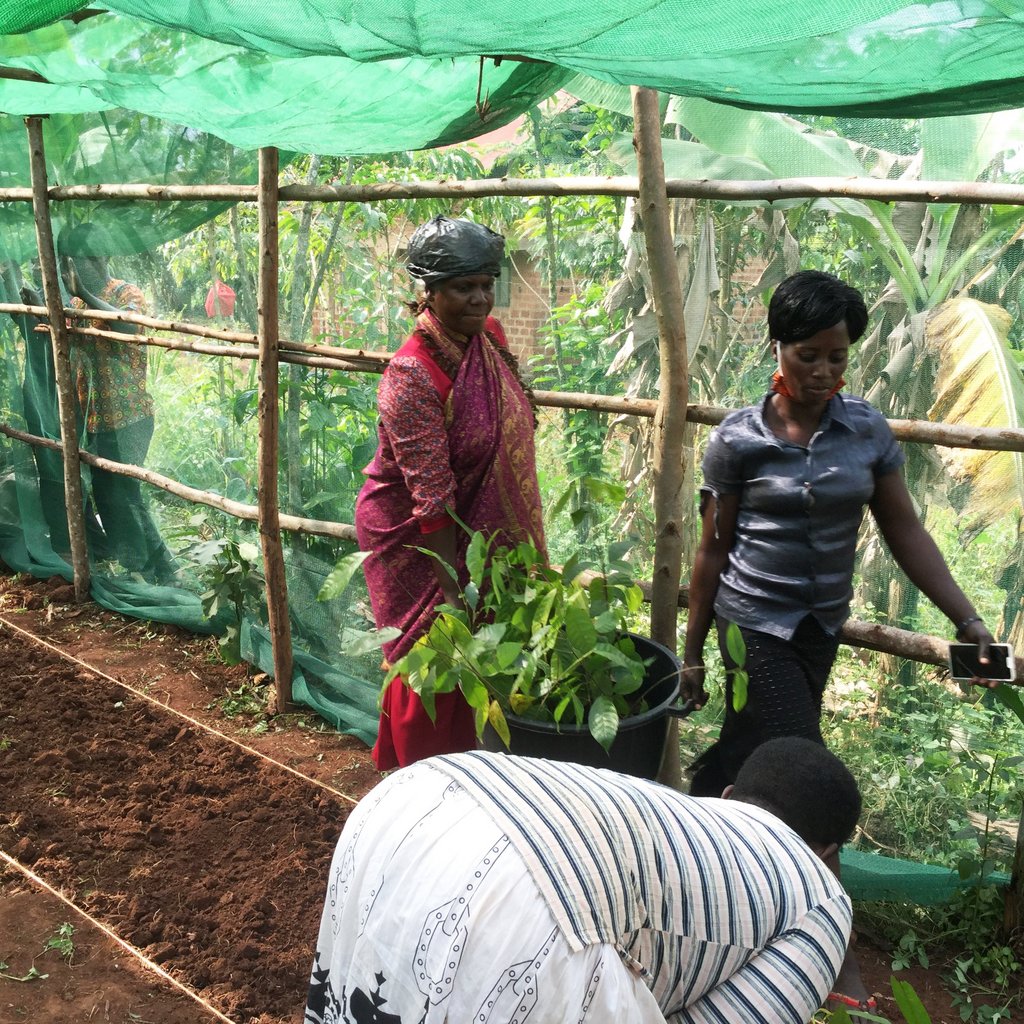Gendered Analysis of small-scale cocoa production in Uganda
What do we see on the project photo?
Women in a nursery taking care of young cocoa plants as part of a training session. These sessions allow them to learn more about cocoa production, which can lead to the adoption of new methods, higher yields and increased productivity.
How would you explain to a child what the project is doing?
Both men and women manage farms that grow cocoa. Yet, women farmers face many challenges that male farmers do not due to social, institutional or cultural norms. We examine how much the farm earns from cocoa production and whether it makes a difference if the farm has a male or female manager.
What is the project’s main objective?
To find out if there is a gender gap and examine gendered power relations for a particular sample group in Mukono district. This is crucial in light of the growing importance of Ugandan cocoa. It therefore highlights potential gender issues and provides incentives for companies on how to address these through their supply chain activities.
Why is the project important?
Over 90% of all female household members in Uganda work in agriculture. Yet female farmers often yield a lower harvest and achieve a lower income because of their gender. This is due to several disadvantages that can be identified for female farmers that risk food security and undermine progress towards long-term development.
What has been the most positive moment during the project?
The project motivated local enumerators to continue their engagement with the smallholder cocoa farmers. They now provide peer-to-peer learning opportunities where many women regularly show up and participate in the different trainings offered.
What have been the biggest challenges encountered in the project?
It was difficult to collect comprehensive quantitative data from smallholder farmers due to missing information or limited understanding. This ultimately led to some methodological challenges during the project’s data analysis.
Which is the most important lesson learnt from the project?
That the gender-focus matters. It is important to increase the evidence base on gender-based disadvantages in global food production and agricultural supply-chains in order to work towards sustainable food systems.
About the project
Title:
A Gendered Analysis of small-scale cocoa production in Uganda, conducted as a master’s thesis as part of the project “Enhancing supply chain stability, resilience and sustainability through improved sub-supplier management – chocolate and cotton apparel case studies”
Contacts:
Michaela Kuhn, Research Assistant
Lina Tennhardt, PhD Candidate
Duration:
2018-2022
Funding institutions:
Swiss National Science Foundation
Implementing institutions:
Research Institute of Organic Agriculture (FiBL)
Further information:
http://www.nfp73.ch/en/projects/supply-chain/enhancing-supply-chain-sustainability

